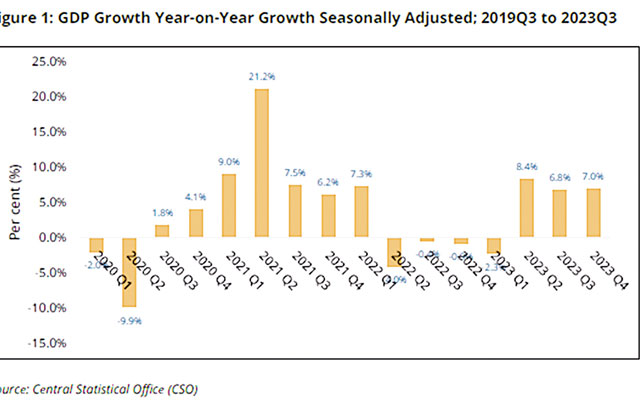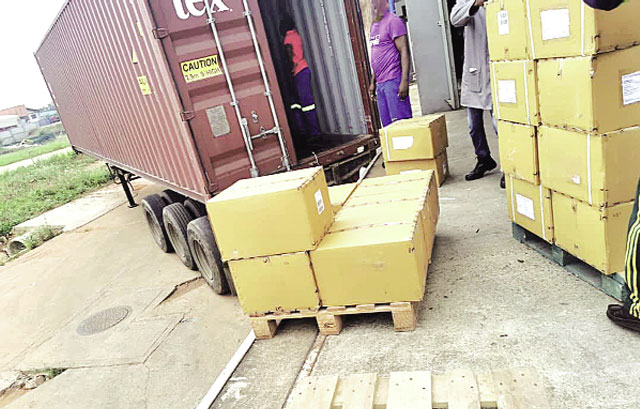By Sibusiso Dlamini | 2020-08-09

When the COVID-19 pandemic hit, life came to a halt and everything changed – instantly!
With the streets empty due to the enforced lockdown, this meant hell for vendors who make a living through the selling of fruit and vegetables on the side of the road.
It was on this thought that I decided to call my favourite vendor who sells right across my office’s street to check up on her and her three children who accompany her to the market on weekends.
Quite frankly, I expected a disheartening conversation, since she had not been able to make it to the market-place in two weeks, yet it was her only source of income, for her and the children, following the abandonment by her husband, who travelled to neighbouring South Africa in search for employment when she was pregnant with the last of her three children.
Market
Much to my surprise, she picked up the phone, and with an excited voice said “Son, such a pleasure to hear from you. Shockingly, this COVID-19 has turned out to be a blessing in disguise for me and my family, because to what may come as a shocker to you, business is booming here in my constituency.
I am actually making more money than I do when I sell in the market. Nearly everyone now comes to me to buy vegetables. I had planted spinach and lettuce, and guess what; they are all close to being finished! Due to the lockdown, people in my constituency can’t go to town, and have also learnt the importance of eating healthy,” she explained happily.
This proves that agriculture has a great potential in terms of changing Africa’s fortunes around. Albeit the obstacles such as illiteracy and low levels of education which tend to limit women’s their chances of employment, or those of even running a successful business, they are still arguably the biggest breadwinners in our continent.
While women in Africa are still faced with obstacles such as illiteracy and low levels of education, which tend to limit their chances of employment, or of running a successful business, they are still pretty much the breadwinners for most families in our continent.
Production
The International Fund for Agricultural Development (IFAD) says 80% of all Africa's farms are small plots; but nonetheless still contribute as much as 80% of food production. This therefore begs the question – with access to the right markets, access to financing, access to technology as well as the right policies in place; would it really be impossible to get to the Africa we desire?
As a continent, we took a leap in the right direction establishing the African Continental Free Trade Area (AfCFTA) in 2018. The AfCFTA brings together all 55-member states of the African Union, covering a market of more than 1.2 billion people and a combined Gross Domestic Product (GDP) of more than US$3.4 trillion.This agreement is laudable and it is on this very spirit that I call all African leaders to re-visit Agenda 2063 – the continent’s current blueprint and master plan for transforming Africa into the global powerhouse of the future.
This strategic framework touches on the future of a prosperous and peaceful Africa, and I couldn’t agree more because the most vital factor towards the development of our continent is ensuring a favourable political climate – one free from unrests and uncertainties – the biggest enemies of progress.
It’s high time that African leaders put their egos aside, and focus on strategic development. When delivering her speech during the commemoration of the Africa Integration Day, Southern African Development Community (SADC) Executive Secretary Dr Stergomena Lawrence Tax said the establishment of the AfCFTA was a key milestone in Africa’s continental integration that will contribute greatly to the realisation of our founding forefathers’ dream of a united, and prosperous Africa, once fully operationalised.
I fully concur with her, and as an African leader, I would look into having the right policies in place to ensure expansion of access to markets at regional and international levels, as this will generate revenue for the country while also increasing each farmer’s income.
I will take you back to my favourite vendor - if regional integration is deepened, and there’s a bridge in fragmented markets, this will enable her to export vegetables either into regional or sub-regional value chains, meaning she gets to enter into a different world in terms of the scale of economies.
Productivity
This means policies on the tariffs need to be looked at, especially for imports from other African countries. Also corruption and red tape are some of the administrative barriers to trade that must be dealt with. I would also look at investment in technology, which will allow for not only an increase in productivity and quality of produce, but also for e-commerce platforms to link producers directly to their consumers. This is why it is vital to create a digital ecosystem, because the current steep data prices in Africa are a hindrance to extensions in terms of giving more farmers greater access to learning that can improve their farming, as well as access to other markets.
This also leads me to a very important fact – our education system. As a continent, agriculture is a potential game-changer; hence I find it puzzling as to why we aren’t looking into inscribing agricultural entrepreneurial approaches in our education system. It doesn’t help to spend hours learning the history of our colonisers, instead of learning innovative ways to develop.
Moreover, integrated regional and sub-regional supply chains will contribute to improving food security in the continent, as it can help maintain low food prices.
According to Vera Songwe, non-resident Senior Fellow - Global Economy and Development, Africa Growth Initiative, in 2015, African countries spent about US$63 billion on food imports, largely from outside the continent.
This to me is a challenge, but once that could easily be dealt with if African countries traded with themselves, instead of relying on imports. This would allow for an exchange in more manufactured and processed goods, and the removal of tariffs on goods increases the value of intra-African trade.
In conclusion, I think this pandemic has proven to Africa the need to empower small and medium sized enterprises, and most importantly the need for intra-Africa trade as this will not only lead to productivity enhancement, but also lead to a growth in leaps and bounds of our GDP which is likely to take a hit from the pandemic. Also this will lead to a solution of unemployment, alleviate poverty as well as bridge the gap of the economic inequalities.
As the first Prime Minister and President of Ghana Kwame Nkrumah rightfully once said; “It is clear that we must find an African solution to our problems, and that this can only be found in African unity. Divided, we are weak; United Africa could become one of the greatest forces for good in the world.”
share story
Post Your Comments Below

Minister of Information, Communication and Technology (ICT) Savannah Maziya says there is a criti...

Eswatini's economic activity, measured by Gross Domestic Product (GDP), grew at a steady pace of ...
ATHLETICS - A true marathon indeed!
The High court has issued an order to Athletics Eswatini...

The ministry of health has announced the arrival of vital medicines and medical supplies.
All material © Swazi Observer. Material may not be published or reproduced in any form without prior written permission.
Design by Real Image Internet